Janelle Monae Knew That She Was Attracted To Girls & Boys At 8-Years-Old
Janelle Monae Knew That She Was Attracted To Boys & Girls At 8-Years-Old
In an new interview, Janelle Monáe opens up about her sexuality. The 33-year-old singer grew up in Kansas City in a Baptist church. She says that she realized she was queer at a young age. She recalls,
I was like eight. I don’t think I actually knew how I identified. I knew that I was attracted to women, girls, men, boys. I knew that.
She admits that she found it difficult to ask those questions without feeling ostracized.
“I’ve seen people get beat up because they were considered to be ‘too feminine’ or ‘too masculine’ for how they identified.
Monae explains that growing up, she watched a gay male friend of her aunt’s be shunned from his community.
“It was because of Black men who thought he was trying to come onto them, but he wasn’t. It was their own ignorance and insecurity and fear that led them to lash out. When I saw that…To be a gay Black man, and Black men are like the ‘heads of the households’ and I’m a Black woman, this young kid. I thought, then it’s really over for me.”
Last year, she came out publicly as bisexual, with her album, “Dirty Computer,” filled with gender-bending, sexually-fluid themes.
And earlier this year, she opened up about what it means – for herself and the world – to be Black and queer in 2019. She said she was afraid to share her sexuality with the public:
“I was terrified. I thought people were gonna say, ‘Oh, she’s doing this as a publicity stunt.’ I thought I wasn’t gonna be able to go back home and be at all the barbecues. I had anxiety. And a lot of it was just untrue. It was my fear of what people were gonna say. And I’m thankful that I didn’t allow that fear to get in the way of my freedom.”
She admits that she sought out a therapist to help sort through her struggles with sexuality:
“There were just conversations that I had to have with myself and my family about my sexuality and the impact that speaking honestly and truthfully about it through my art would have. I grew up in the Midwest….in a very small town, and I went to a Baptist church; to be anything other than heterosexual is a sin in that community, and growing up, I was always told I’d go to hell if I was. There was a part of me that had to deal with what that meant.”
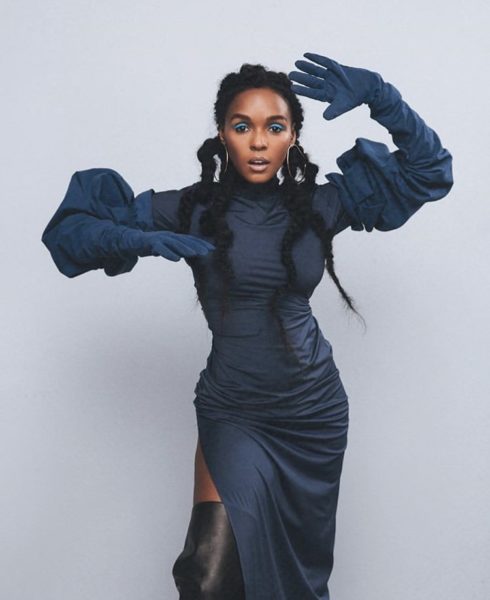
She continued:
“After I had those conversations with myself and I saw a therapist, I had to be able to talk about what it meant to identify as bisexual. What does that mean? How would discovering that impact the relationship I was in at the time? How do I talk about it with my family? How do I go back to my church? The bottom line is I had to have conversations with myself and the folks that love and care about me, and realize they may not understand what it means for me to be a person who identifies as queer in this world.

Janelle says telling the truth about her sexuality in “Dirty Computer” required her to “create her own church:”
“…it wasn’t like I wanted to even make it a declaration. I knew that by being truthful through my art, people were gonna have questions, and I had to figure out a way to talk about it. And in having those talks with myself, I realized it was bigger than just me. I made a bigger declaration to myself — that I’m not putting out an album if I can’t be all of me. You’re gonna take the blackness, you’re gonna take the fact that I love science fiction. You’re gonna take the fact that I am a free *ss motherf*cker. You’re gonna take that all in and because that is what you’re gonna get…There are millions of other folks who are looking for a community. And I just learned into that. I leaned into the idea that if my own church won’t accept me, I’m gonna create my own church.”
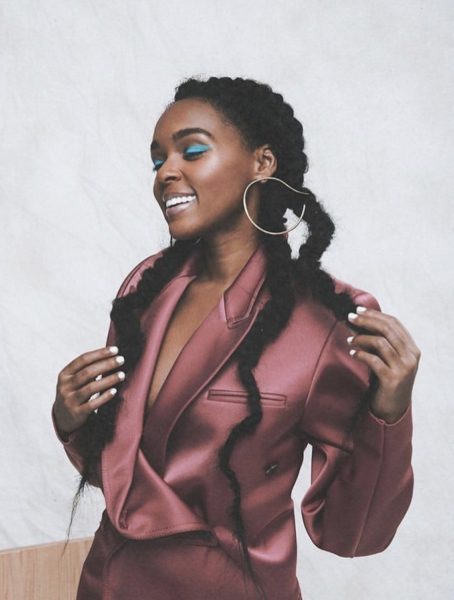
On her advice for young people struggling with their sexuality she says,
“Don’t allow yourself to feel any pressure other than the pressure you put on you. And I think there’s so much power in not labeling yourself. That said, there’s also power in saying, ‘This is how I identify,’ and having community with the folks you identify with. Everyone is on a journey of self-discovery, and those of us who may not understand others’ journeys should be more empathetic and tolerant and supportive…a big thing for me is just being patient with myself, and not allowing myself to make decisions based in fear, or a fear of people not understanding me. And it’s hard. You go through experiences where you feel fearful, and you end up being depressed, or having anxiety, and not taking care of you. But that fear should not get in the way of how you love or who you love.”
She also explains her definition of what it means to be Black and queer in 2019.
“To be young, queer, and black in America means that you can be misunderstood. You can be hated. It also means that you can be celebrated and loved. And I think there’s a lot at stake when you’re living out loud in that way. One thing I’ve realized even more was that when you walk in your truth, you can inspire and encourage people to walk in theirs…I think people are looking for that validation. When they’re trying to talk to their parents and their parents don’t see that representation out in the real world and people being accepted like that — it’s foreign to them, and I think that by being the example, we make it a little easier for kids to be able to talk to their loved ones about it.”
See some of our favorite photos of Monae below.
Follow us: @theJasmineBRAND on Twitter | theJasmineBRAND on Facebook| theJasmineBRAND_ on Instagram


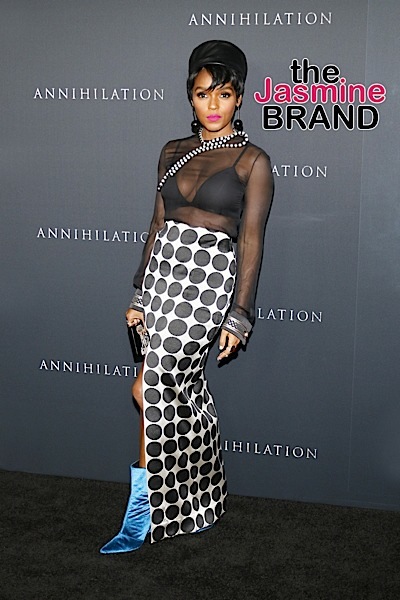
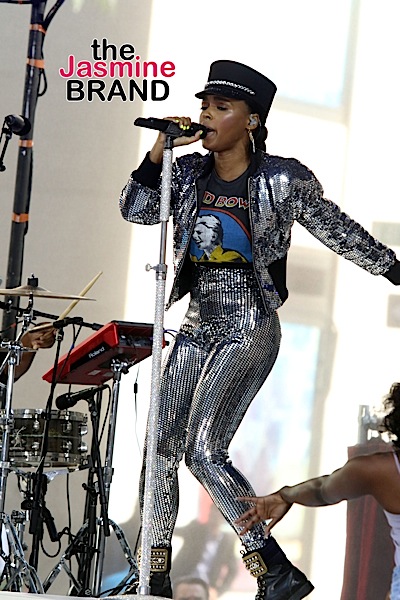
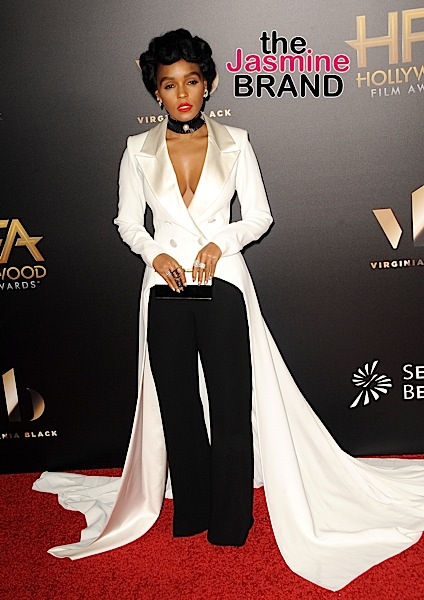
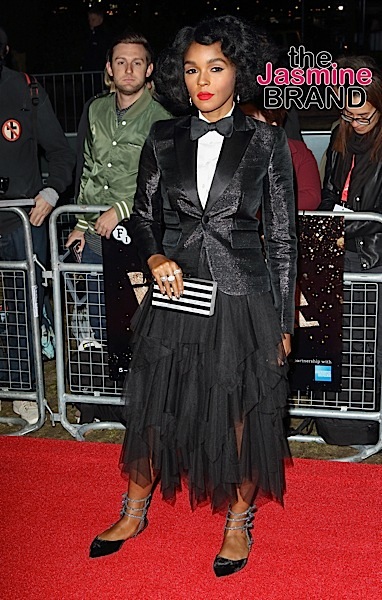
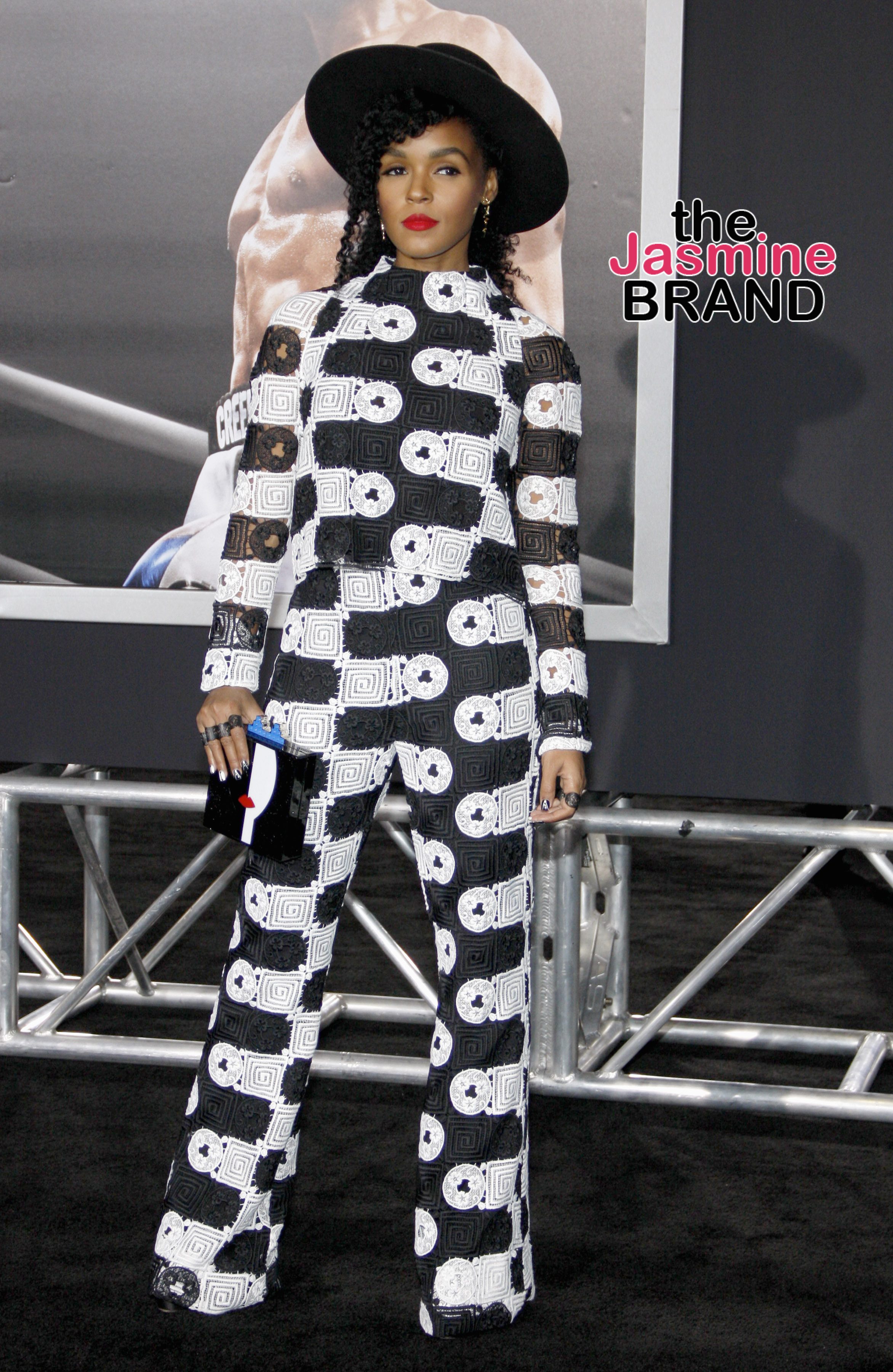
 Previous Article
Previous Article Next Article
Next Article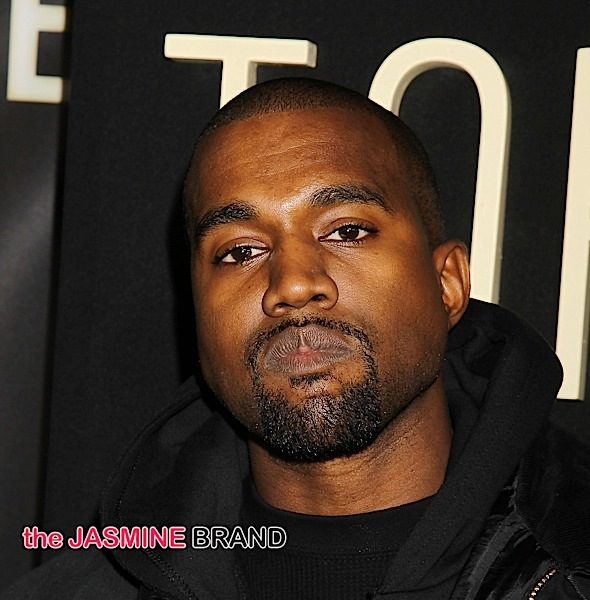 Kanye West To Give G.O.O.D. Music Artists His Shares Of Their Music + Vows: I’m Wearing Jordans Till I’m On The Board At Adidas
Kanye West To Give G.O.O.D. Music Artists His Shares Of Their Music + Vows: I’m Wearing Jordans Till I’m On The Board At Adidas 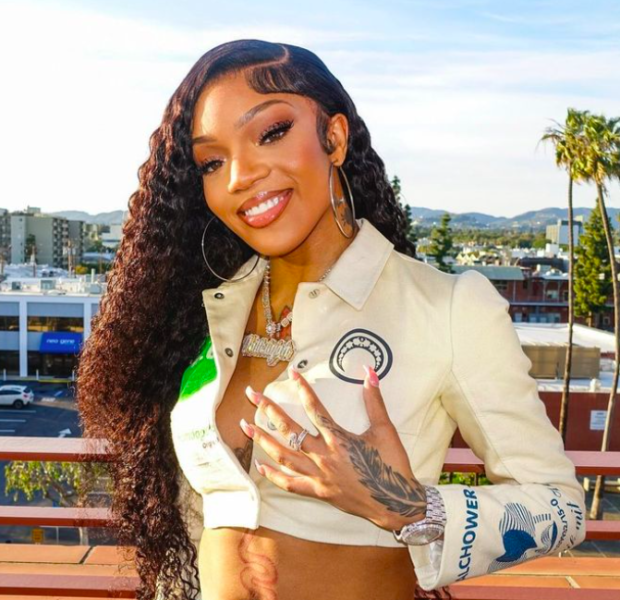 GloRilla Partners w/ Former Job Checkers To Launch $4 Meal Deal
GloRilla Partners w/ Former Job Checkers To Launch $4 Meal Deal 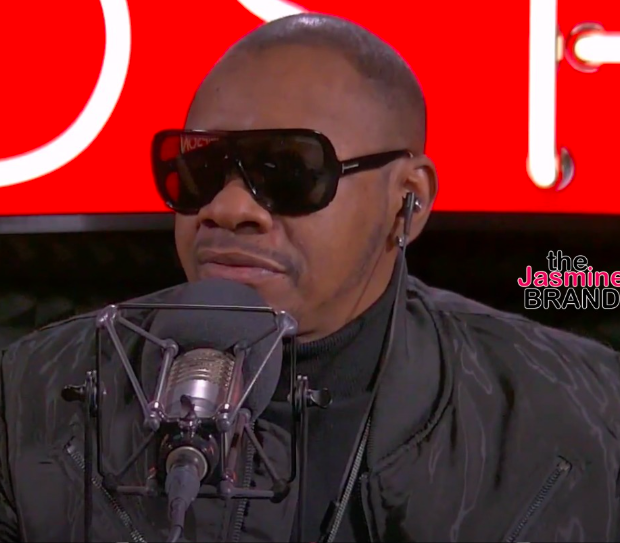 Jodeci Singer K-Ci Is Recovering After Being Hospitalized For Pneumonia, Group Cancels Weekend Shows
Jodeci Singer K-Ci Is Recovering After Being Hospitalized For Pneumonia, Group Cancels Weekend Shows 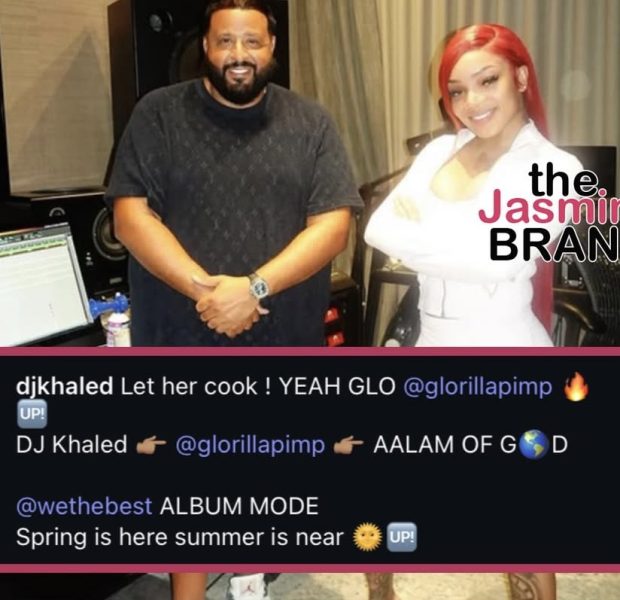 DJ Khaled Confirms GloRilla Will Appear On His New Album!
DJ Khaled Confirms GloRilla Will Appear On His New Album! ![Britney Spears Shows Off Vocals In New Video [FOOTAGE]](https://thejasminebrand.com/wp-content/uploads/2024/01/JB-12-3-620x600.png) Britney Spears Shows Off Vocals In New Video [FOOTAGE]
Britney Spears Shows Off Vocals In New Video [FOOTAGE] 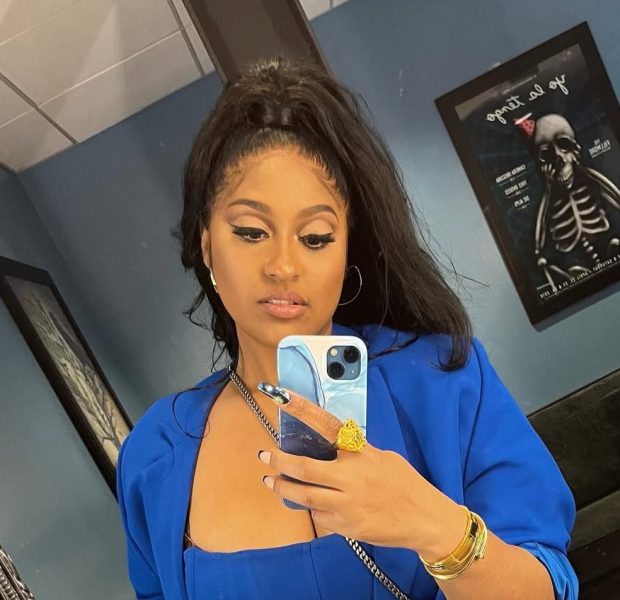 Jazmine Sullivan Suffered A Miscarriage
Jazmine Sullivan Suffered A Miscarriage 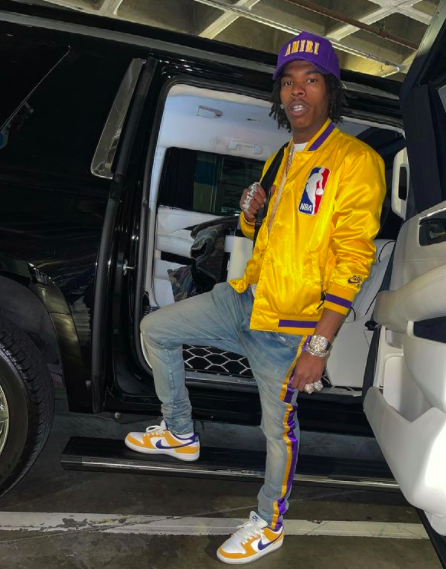 Lil Baby Teams Up w/ Atlanta Business Owner To Employ 100 People To Help Boost Economy & Provide Opportunities
Lil Baby Teams Up w/ Atlanta Business Owner To Employ 100 People To Help Boost Economy & Provide Opportunities ![The Game Believes NBA YoungBoy Will Be The 2Pac Of The Current Generation: It’s Just Different Eras Of Greatness [VIDEO]](https://thejasminebrand.com/wp-content/uploads/2022/09/IMG_7974-scaled-620x600.jpg) The Game Believes NBA YoungBoy Will Be The 2Pac Of The Current Generation: It’s Just Different Eras Of Greatness [VIDEO]
The Game Believes NBA YoungBoy Will Be The 2Pac Of The Current Generation: It’s Just Different Eras Of Greatness [VIDEO]